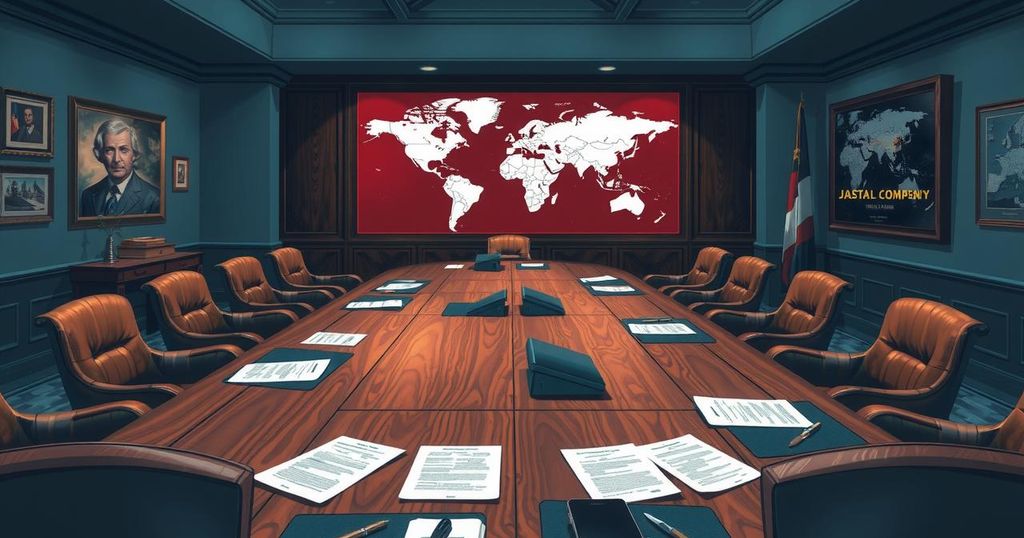Rubio Discusses Gaza, Iran Deal, and Syria’s Fragile State at Senate Hearing

US Secretary of State Marco Rubio addressed the Senate on issues involving Gaza, Iran’s nuclear program, and Syria. He clarified that deporting Gazans to Libya is not being discussed and highlighted the precarious situation in Syria, calling for cautious engagement with the new government amid significant challenges. While he noted a positive return of aid to Gaza, he emphasized the complexity of establishing stability in the region.
During a Senate Foreign Relations Committee hearing on Tuesday, US Secretary of State Marco Rubio discussed several pressing issues, including the Gaza situation, the Iran nuclear deal, and the current state of Syria. He made clear that the US has not considered the deportation of Gazans to Libya. Instead, the focus has been on whether regional nations would accept Gazans who wish to leave voluntarily. “What we have talked to some nations about is if someone voluntarily and willingly says I want to go somewhere else…are there countries in the region willing to accept them?” Rubio stated, emphasizing the voluntary aspect.
Regarding humanitarian aid to Gaza, Rubio noted a welcomed return of food shipments, mentioning that another 100 trucks are queued to cross into the enclave. However, despite the delivery efforts, the United Nations reported that no aid has yet reached those in need due to delays at the Kerem Shalom crossing. “Unfortunately, they were not able to bring those supplies into our warehouse,” said UN spokesperson Stephane Dujarric, indicating logistical challenges remain.
On the topic of the Iran nuclear deal, Rubio pointed out that while pursuing an agreement allowing Iran a civil nuclear energy program without uranium enrichment, the process would be fraught with difficulty. “It will not be easy, but that’s the process we’re engaged in now,” he said, further outlining the administration’s approach to diplomacy.
As for Syria, Rubio discussed the potential risks posed by relaxing sanctions after President Trump’s meeting with the new Syrian leader, Ahmed al-Sharaa. He described the current Syrian government as precarious, with potential collapse looming if challenges persist. “It is our assessment that the transitional authority…is maybe weeks, not many months, away from potential collapse and a full-scale civil war,” he stated, painting a grim picture of the situation.
Rubio expressed optimism regarding the diverse communities in Syria, as different groups, including Sunni and Shia Muslims, Christians, Alawites, and Kurds, continue to identify as Syrians despite the Assad regime’s divisive tactics. He mentioned the complex task of determining whether Sharaa can be trusted, given his background with associations to al-Qaeda. He noted that the new figures in Syria would likely not pass an FBI background check, highlighting the tough choices the administration must navigate.
Commentators have highlighted Rubio’s warnings about Syria’s potential descent into civil war, but it’s crucial to recognize that Rubio emphasized the importance of working with the new government. There’s internal conflict surrounding the Trump administration’s strategy, especially considering potential sanctions relief amid pressure from various factions in Washington.
Despite having garnered support from regional leaders like Saudi Crown Prince Mohammed bin Salman and Turkey’s President Erdogan during their conversations, Sharaa’s administration faces considerable obstacles. Local daily incidents challenging the new government continue, along with issues from ISIS and pro-Assad groups. Rubio illustrated how the new administration is working to consolidate armed groups under a unified security force.
In the broader context, as the US grapples with foreign policy direction, Rubio argued that engagement with Syria is essential to ensure the country does not drift towards instability and fall into the hands of anti-Western entities. The stakes are high, and how the US navigates this will be critical in determining the future of both Syria and regional dynamics.
In summary, Secretary of State Marco Rubio’s testimony before the Senate highlighted a range of interconnected issues involving Gaza, the Iran nuclear deal, and the fragile situation in Syria. His insights reveal both the urgency and complexity of US foreign policy, especially as challenges persist in these regions. As the US grapples with its next steps, how it manages relationships with both allies and adversaries will greatly affect political stability and humanitarian conditions moving forward.
Original Source: www.jpost.com







